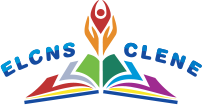| Instructional Leadership Academy (ILA) Curriculum | Critical Content | Three Year Course Schedule |
|
ILA 1 Best Practices in Instruction |
Course content will include: developing an understanding of how the brain processes information, theories and principles of learning, learning styles and preferences, motivation, multiple intelligences, barriers to learning and their implications for teaching and learning, student engagement concepts and strategies, vocabulary development and concept attainment, skills and approaches for constructing understanding, literacy development across content areas, research-based instructional strategies, and how these methods connect to current learning theory, curriculum, bias, culturally responsive practices, and inclusive education for instructional leaders. The course models effective research based practices in leading staff and school/district professional learning. Course one is fully in person for 6 Saturdays. |
Year 1: September - December |
|
ILA 2 Best Practices in Assessment |
Building on ILA 1, course content will include: formative (assessment for) and summative (assessment of) learning, assessment research and strategies related to effective grading practices and evaluation, how to develop a balanced assessment system, and staying focused on the learner and the learning. How to recognize bias in assessments, culturally relevant assessment practices, and how to assess students in an inclusive school environment will also be a focus for instructional leaders in this course. This course is a hybrid one, half the classes will be in person and half on line. |
Year 1: January - April |
|
ILA 3 Coaching |
This course is a blended learning experience that includes course work, laboratories/workshops, and practicums. A distinctive element of the Nova Scotia Instructional Leadership Program is the Feedback and Coaching Lab™ workshops and the Artisan Teacher™: Introduction to Coaching summer institute intended to help instructional leaders learn to use descriptive and specific feedback for teachers focused on their teaching talents. Participants will learn and become proficient at four feedback and coaching techniques practiced in a school setting. Practicums include practice of the feedback and coaching tools, completion of learning logs, and reflections on the coaching process. The curriculum focuses on effective practice, theory and research for culturally responsive instructional leaders. |
Year 2: September– January |
|
ILA 4 Recognizing and Acting on Discrimination and Racism |
Nova Scotia’s Inclusive Education Policy came into effect September 2020. The Policy outlines the public education system’s commitment to ensure a high quality, equitable education for all students. Unlike many policies, the Inclusive Education Policy begins with an introduction that highlights the importance of student well-being and achievement, explicitly stating that every student should feel that they belong, that they are accepted, that they are safe and that they are valued when they attend school. These elements are the foundation of student well-being, and when students know and feel that their well-being is being supported, they are in a stronger position to learn, achieve and succeed. In this course, Instructional Leaders will:
This course is a hybrid one meaning that half the classes will be in person and half online. This course is done over 6 sessions. |
Year 2: January - April |
|
ILA 5 Developing A Collaborative Learning Culture to Support Student Success |
Building on the first four courses, participants will engage in a job embedded individual action research project grounded in improvement planning. Participants will learn how to use multiple data sources, how to organize and disaggregate data, analyze data for instructional themes and patterns, present and communicate data findings, use data to influence instructional changes, and lead data-driven discussions for improving instruction. Course content will also incorporate an understanding of the characteristics and components of collaborative learning teams (CLTs) and the value of collaborative approaches to making change and innovation in supporting student success and a deeper understanding of collective efficacy. This course is a hybrid course and half the courses will be in person and half online. |
Year 3: September - December |
|
ILA 6 The Professional Instructional Leader |
This course provides tools, strategies and resources to support the other realities that cannot be ignored in leadership roles. Educational leaders are professionals who have professional responsibilities, manage facilities, operations, and financial and human resources that result in the safe and orderly day-to-day operation of a respectful, equitable and effective teaching and learning environment. The competent management of the school provides the Instructional Leader with the opportunity to focus on what really matters in highly effective learning environments. Educational leaders ensure that decisions and actions are governed by acts, laws, regulations, policies, collective agreements, professional ethics and accountability, and the vision of the organization. They manage financial, personnel and other resources to align with school and regional/Board priorities, support student learning and strengthen professional capacity. They build a successful school through collaboration with governing bodies, school advisory councils, families, communities and other partners. They maintain a focus on quality teaching and student success by establishing processes and structures to review and maximize instructional effectiveness, equitable learning opportunities and student performance. Coaching techniques to support continued teacher growth will be revisited. The course will also include knowledge and skill building related to culture shaping and leadership factors that help to build professional learning communities. This is done through seminars where teams form communities of practice and dive deeper into topics that are correlated with highly effective practices. This course will be mainly online. |
Year 3: January - April |
| Final Culminating Assessment |
While not a course, participants will be expected as part of the requirements of the program to demonstrate knowledge, skills, and competencies acquired from the six courses, their practicum experiences, coaching experiences, and their action research. As part of the culminating assessment participants will identify teachers, students and school community members who can speak to their abilities as an instructional leader. Culminating assessments will take place over a half day at each participant's work site. For additional information please see: https://www.elcns.ca/nsila/final-culminating-assessment |
Year 3: April–May |

